Poetry in Prose
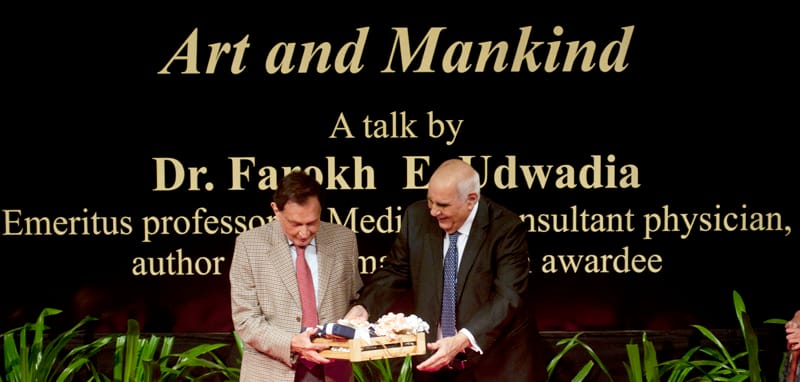
The inseparability of art and human existence, the civilising impact of the visual and performing arts, and the humaneness that they nurture were themes Dr. Farokh E. Udwadia addressed with great eloquence and erudition, sprinkling them with poetic interludes, at the 2021 edition of the Jamshed Bhabha Memorial Lectures. We bring you excerpts from the online broadcast of the lecture that continues to garner thousands of views.
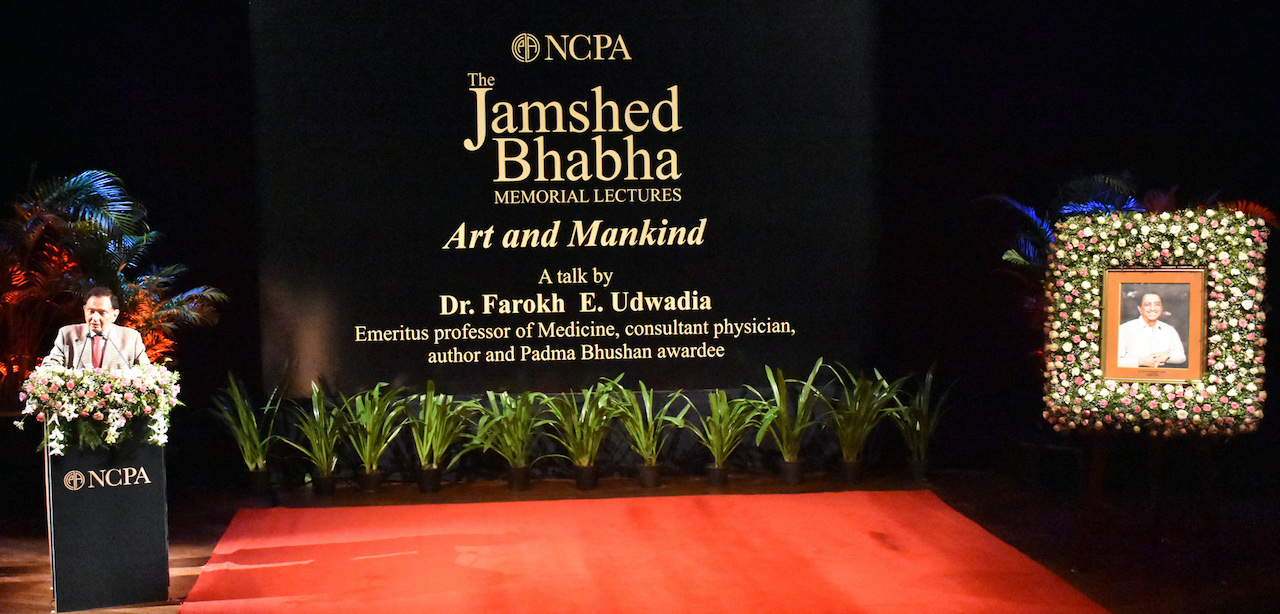
On Dr. Jamshed Bhabha
Jamshed Bhabha was both, a patient and a friend. He was a warm, gentle person; a joy to be with. He was a visionary. To start with, there was nothing—if I may say so, nothingness – except the waves of the Arabian Sea lapping the shores of this island city at Nariman Point, particularly, and then his dream slowly began to be realised. Land was reclaimed from the sea and it was on this land that you see this beautiful structure. Now, this centre propagates art for one thing, performs arts for another. Equally important is the fact that it has preserved our national heritage. So, you have a visionary whose vision comes true, a dreamer who dreams, and who lived his dreams.
On Mr. Khushroo N. Suntook
Jamshed Bhabha passed his mantle over to Khushroo Suntook, who has expanded the scope and vista of this national centre. The Symphony Orchestra of India was his brainchild and it has done so well. His remarkable connections with musicians in the West have been responsible for allowing the SOI to perform at places outside this country.
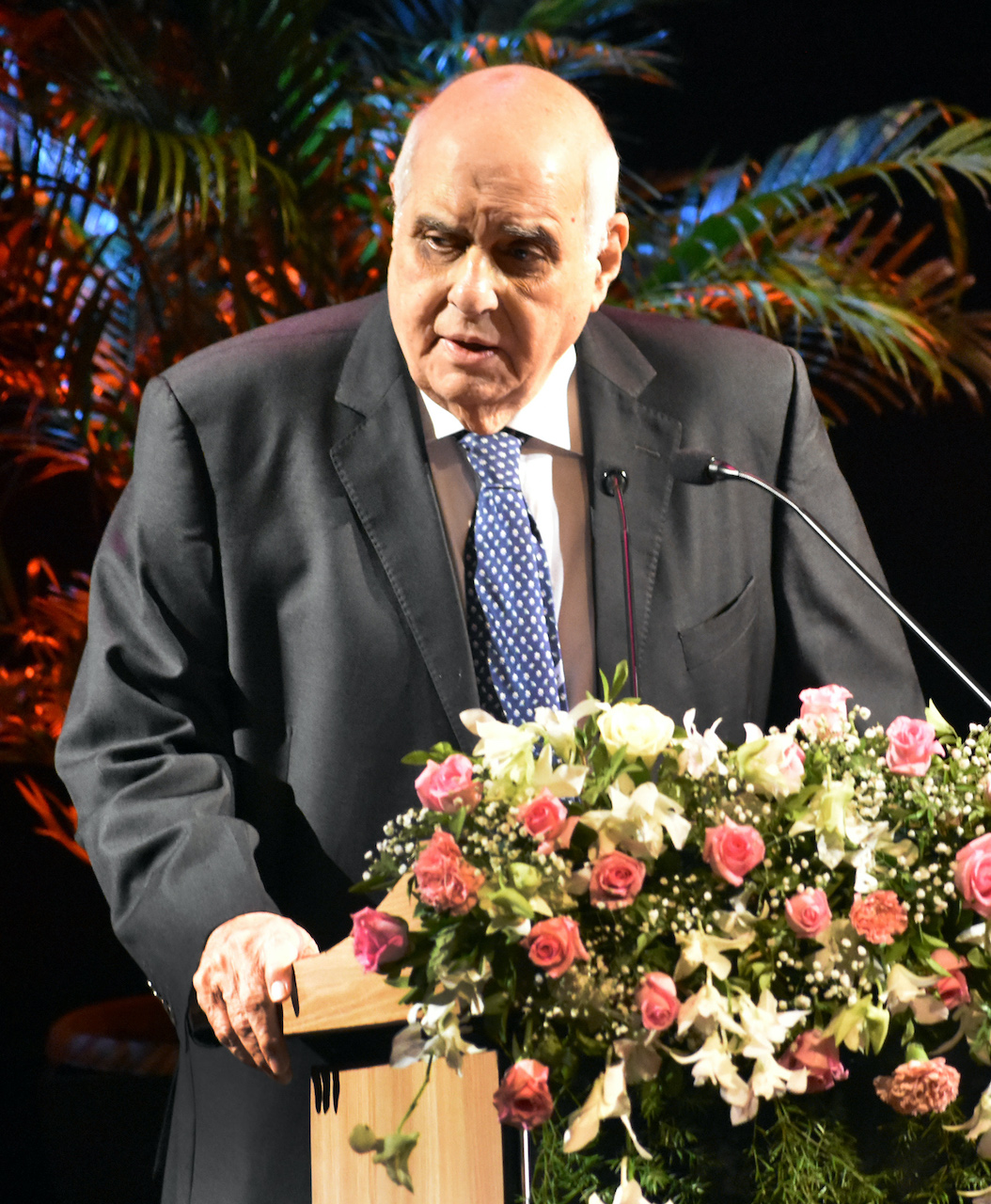
Amazingly, he has also streamlined the management. He has managed to get a huge collection of long-playing records and also a collection of about 10,000 books with a very good library that this centre possesses. So, there you have it—the centre going from one height to the other. If Jamshed Bhabha is not in the Valhalla of musicians, he might perhaps be looking down upon us and smiling to see that this good centre has progressed markedly under the tutelage of his friend and protégé, Khushroo Suntook.
On art and mankind
I would like to introduce this subject with a little bit of artistic fervour. Art is the breath, smiles and tears of all mankind. Once life began to ascend the evolutionary ladder that made it human, art was born. One often hears, sometimes in the same breath, the use of the words ‘art’ and ‘culture’. Culture is a way of living of a society, people, a country. There can be no culture without art. Art is the heartbeat of a culture. What is more, it can transcend the boundaries of a particular culture. It is, therefore, a great communicator [that] brings people together. It builds bridges across countries…sometimes, over troubled waters.
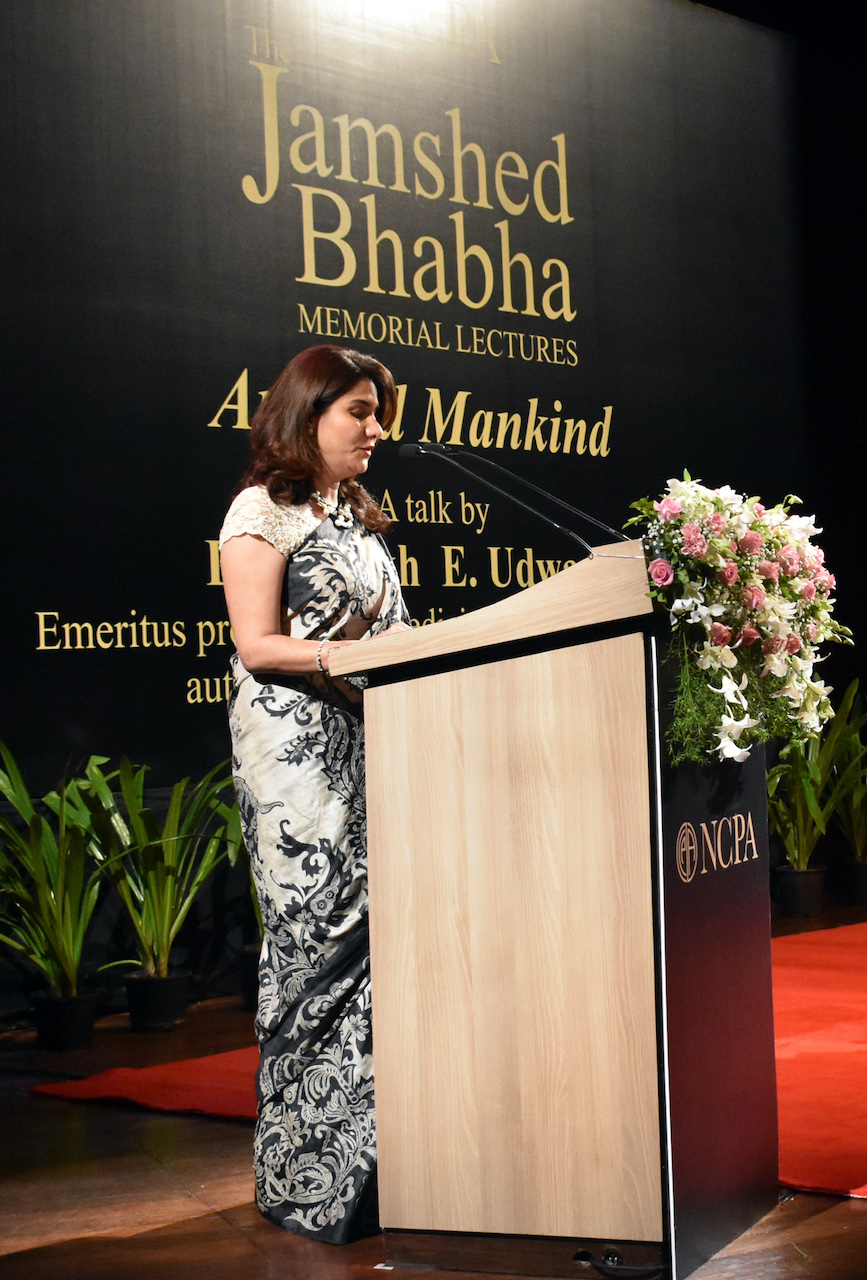
Art is not only important but very valuable for mankind. It opens a window to the outer world—don’t forget, art and science are the twin pillars that have marked the ascent of man from early history to the present times. In fact, it is the balance between art and science that will determine the future of man and our civilisation. More importantly, art is the window to the inner world of man. It enriches his feelings, senses, sensibilities. It cultivates his aesthetic sense, and in doing so, it moulds you into a better, more civilised human being.
On preserving our heritage
We are a civilisation that goes back to 5,000 years. The cultural heritage of this country is second to none. This heritage should be passionately preserved. For this to happen, we need support from the powers that be but also from people within this country. It is important that people are aware of the importance of art, participate in art, attend functions showing art. But there is a strange apathy. Look at the number of people visiting museums in London and New York, and [those] in this part of the world. I am reminded of Dante’s great work, The Divine Comedy. He said, ‘It was at school that I learnt, Oh! Dante, to tread the path that was to lead me here’. I am going to take this out of context. It is at school that we must start teaching our children the importance and value of art.
On literature and the arts
You stand before a great canvas. You forget the humdrum of your usual existence. You are rapt in a world of colour and imagination. You look at the colours, the harmony, or not, you try and find out what the artist means to say. You explore the canvas and without being aware, you are exploring yourself. You know yourself better.
We have a treasure trove of literature. Literature makes you feel the resilience of the spirit of man. It indirectly tells you there is a divine spark in every human heart. It tells you the force of destiny that rules the lives of many men and women. Also, the forces of good and evil in the outside world are often mirrored in all of us humans.
Let me now go onto poetry. It is the most evocative of the arts, only next to music. Poetry is a song of chosen words. Rather than speak of poetry, I give you an interlude where I will recite some poetry. Let’s take love. I’ve chosen parts of a love sonnet by Pablo Neruda. It loses a lot of its beauty in translation. I’ve chosen it because it has an imagery that I have never seen in English poetry:
I love you as certain dark things are to be loved
In secret, between the shadow and the soul
I love you as the blooming plant that never blooms
But has within it, the scent of hidden flowers
I love you not knowing how, or where, or when
I love you because I do not know any other way than this
That you do not exist nor do I
So close, that your hand on my chest is mine
So close, that your eyes close as I fall asleep
Another verse by [Auden] beautifully applies to the situation we are in today, the curse of this pandemic:
With the farming of a verse, make a vineyard of the curse;
In the deserts of the heart, let the healing fountain start,
In the prison of his days, teach the free man how to praise.
I am thinking of the Italians who leaned out of their windows singing and playing to help their neighbours in distress.
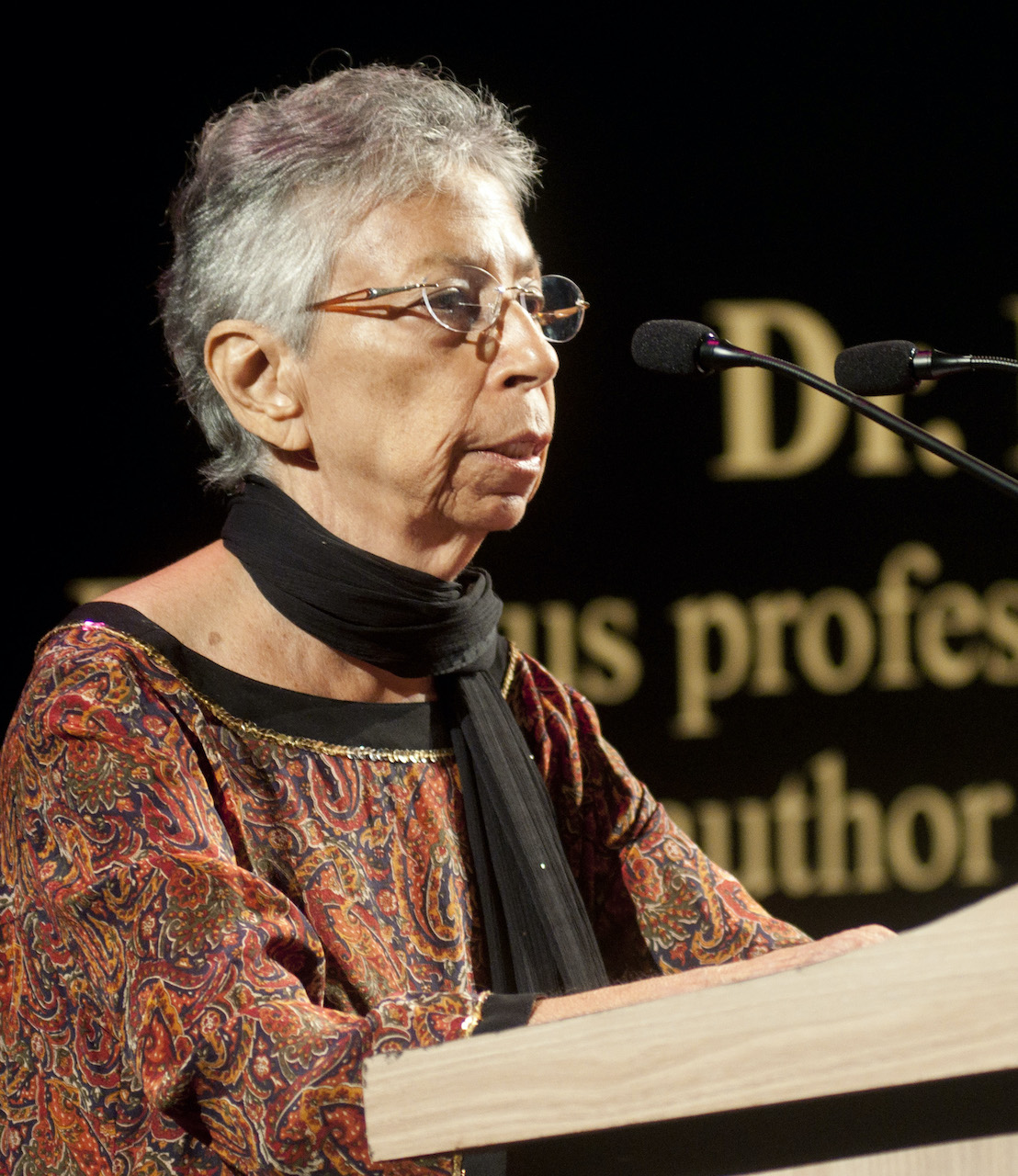
Let me dwell on music. Music is an inborn entity, a feature of the human psyche. It is rooted deep in human nature and is the fundamental attribute and activity of the human species. More people in this world hear music than at any time before—on your computer, in temples and churches, subways, small salons and large auditoriums. You sing music, hum, whistle music. Verily, the world is filled with the sound of music. From the beginning of time, there is no culture that lacks music.
On creative art
Great art stems from creativity. Creativity doesn’t arise from nothingness. [It] rises from the experiences that an artist has in his life. It is these cumulative experiences buried deep down in his subconscious state that is the source of artistic creativity but we all, as we grow older, have many experiences. Why are we not artists? The artist looks at the world differently. He thinks deeply, feels intensely, imagines vividly. It is feeling rather than intellect that makes him transform these experiences and transcribe reality to reach a point beyond it.
Concluding notes
What does art do for mankind? It makes a human being more human, adds humaneness to his humanity. It makes you more loving, forgiving, empathic and above all, more caring. Of course, you care for yourself, your family. But would you dare say that you care for mankind? What a Utopian dream! But man loves to dream. I shall let this mystic poet speak for me:
Every man’s death diminishes me
For I am concerned with mankind
So send not to ask for whom the bell tolls
It tolls for thee.
(Transcribed by Roshan Dastoor)
The lecture is available on the YouTube channel and Facebook page of the NCPA.
This piece was originally published by the National Centre for the Performing Arts, Mumbai, in the September 2021 issue of ON Stage – their monthly arts magazine. All images © NCPA Mumbai.






